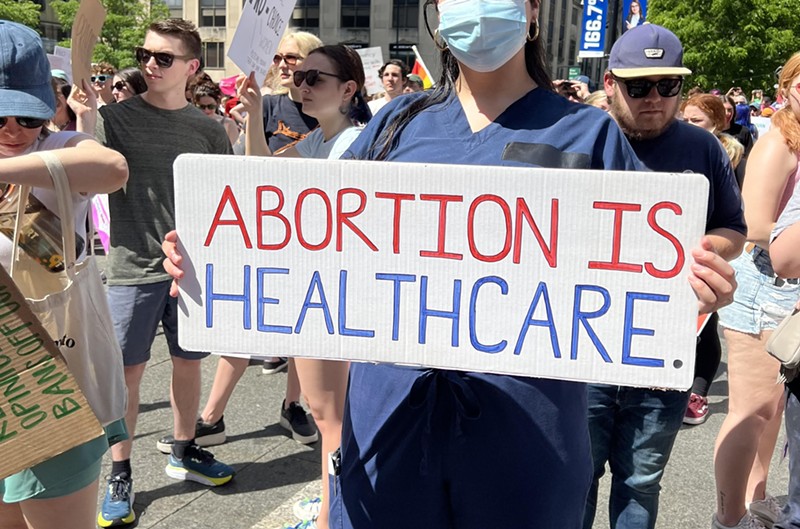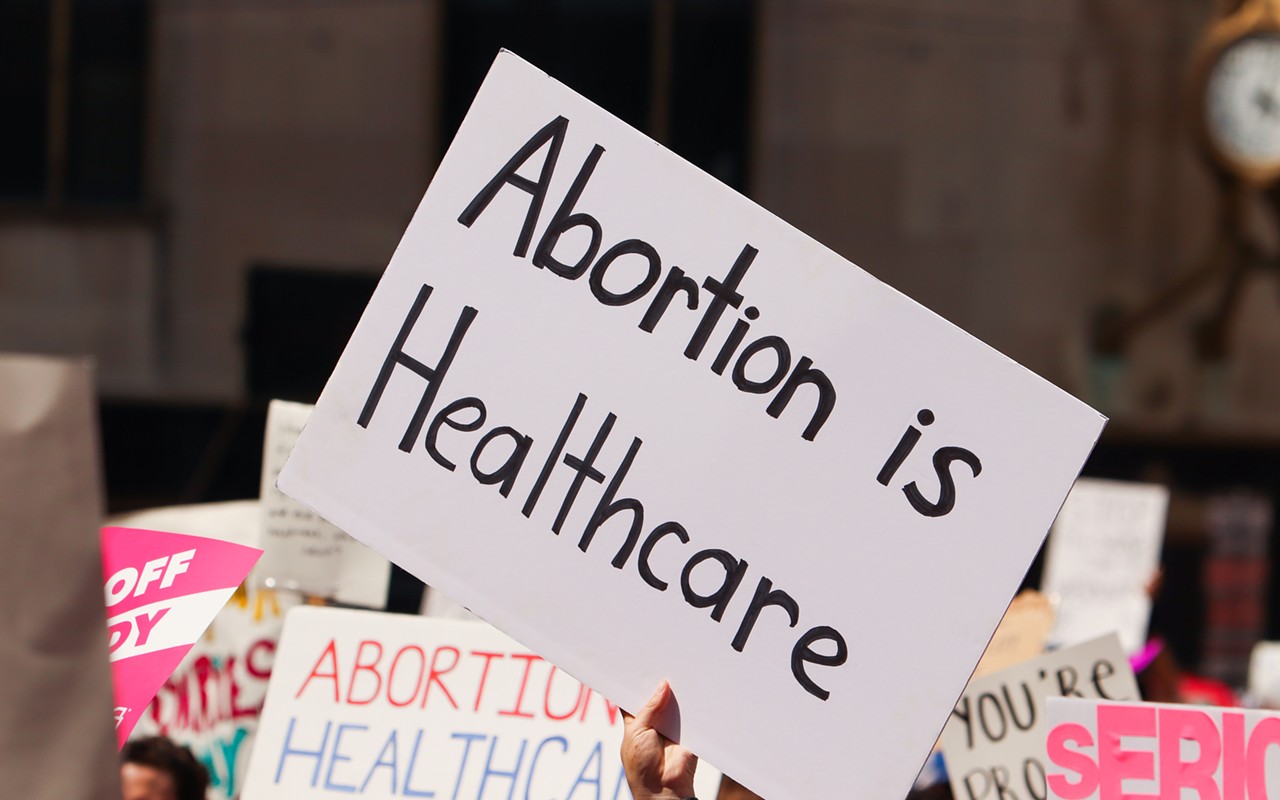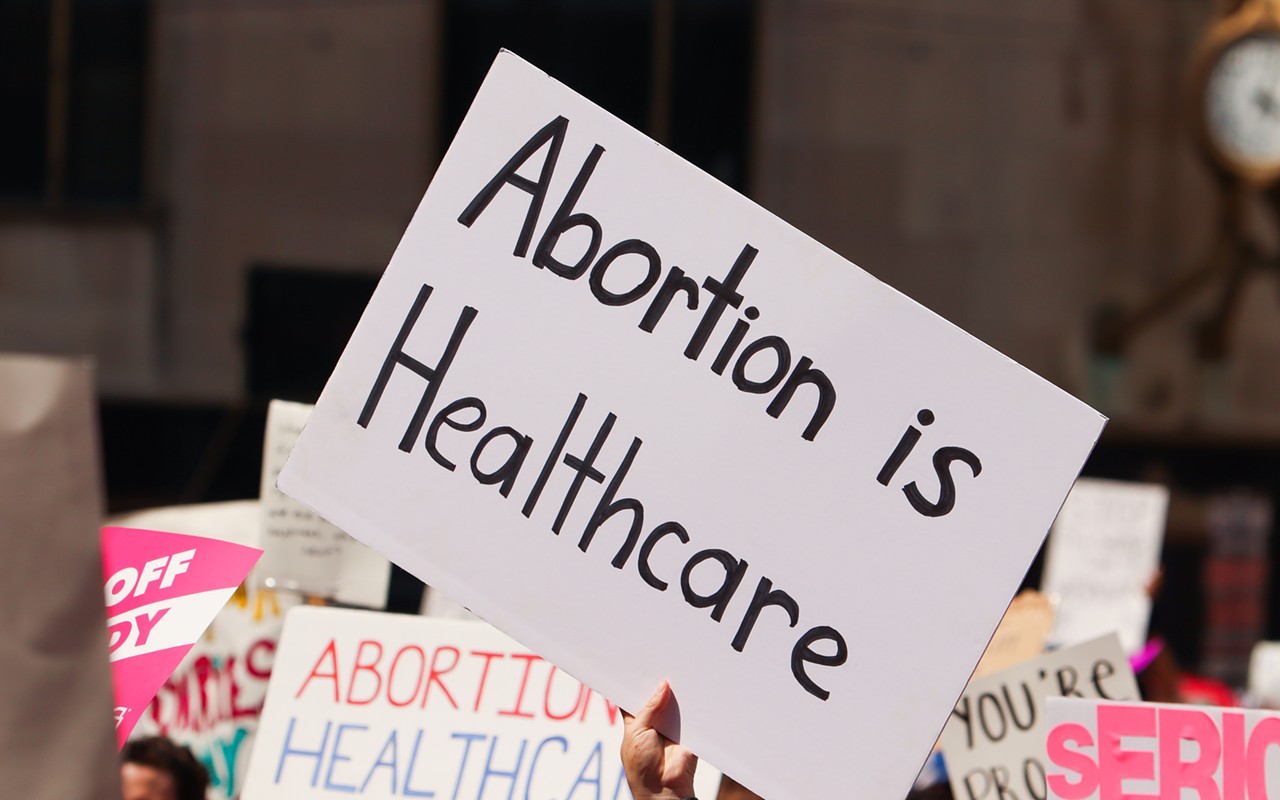
Dr. David Burkons remembers how his classmates got abortion care when he attended The Ohio State University in Columbus in the 1960s.
“There was some corner down on Cleveland Avenue,” Burkons says. “You showed up there and a car came by, you got in, you gave him the money, he takes you to have an abortion, you came back.”
By the time he graduated from medical school in 1973, the U.S. Supreme Court had just issued its decision on Roe v. Wade, legalizing abortion care nationally. Burkons went on to deliver babies and terminate pregnancies, serving the choices of patients no matter their decision. Now, nearly 50 years later as the court is poised to overturn its landmark decision, Burkons worries about how Ohioans will access abortion care in a post-Roe world.
“There are going to be some deaths involved with this. There will be very serious consequences,” Burkons says.
Rather than people slipping into a car to be whisked to a secret abortion site, Burkons says the new version of the back-alley abortion procedure will start online when patients order pills to end a pregnancy from out-of-state and black-market sellers.
“The internet has changed everything,” Burkons says.
Most people who end a pregnancy do so with a series of prescribed pills – about 47 percent in Ohio, about 54 percent in the United States. That number has increased sharply in recent years; in 2015, only four percent of abortion treatments in Ohio were carried out using medication. The first pill usually prescribed is mifepristone (brand name Mifeprex), while the second pill, misoprostol (brand name Cytotec), is taken 24 to 48 hours later.
Burkons, who runs three abortion clinics – two in the Cleveland area, one in Toldeo – said about 75% of the abortion care he provides is via the pill.
“Part of it is a matter of how we run our clinic. We make an effort to get people in very, very quickly,” Burkons says.
That timing is what Burkons says will be compromised if patients are forced to find pills to terminate their own pregnancies online. The abortion pill currently is only an option during the first 10 weeks of pregnancy. After nine weeks and six days, Burkons says patients risk heavier cases of bleeding, cramping and more complications that could require medical attention.
While pregnancy tests can detect a pregnancy very early, Burkons says most women don’t know they are pregnant until after their first missed period, which can be well beyond six weeks. If Ohio’s trigger bans are passed and abortion care outlawed, that will force patients to wait for pills from out of state or overseas to ship in time to take the pills safely. Burkons doesn’t like those odds.
“I think what’s going to happen is people will find out they’re pregnant, they’ll find these sites, they’ll order the pills, the pills will come and it’s going to take a week or two to get the pills, so they’re already going to be further along and it’s going to be a much higher chance they’re going to have problems. And there’s going to be no one for them to call,” Burkons says.
Patients who take the right abortion pills within the first ten weeks are likely to have a successful experience, Burkons says, but the uncertainty of how far along a pregnancy might be coupled with the delay of shipping the meds is still only part of the risk. Making sure you’re getting the right pills online is Burkons next fear.
“What you’re going to see are a lot of websites – some are going to be legitimate, some are not going to be legitimate,” Burkons says. “If you go on to the internet now and look up ‘abortion,’ you get these crisis pregnancy centers that have very professional and misleading websites that are there to confuse women and keep them from having abortions. I guarantee you these anti-choice people are going to be putting up websites like that, and if people get any medication it’s probably going to be Smarties [candy] or something.”
Burkons says that even if a patient can’t get their hands on both misoprostol and mifepristone, just misoprostol could work in some cases – but the two drugs are most effective together. If the pills are limited in supply, Burkons says there will be a higher rate of incomplete abortions, putting patients at major risk for medical emergencies and – depending on new laws that may crop up – criminal charges.
“Infection, massive hemorrhage, that sort of stuff,” Burkons says. “There’s products left in, and they’re going to be bleeding and need to go to the emergency room.”
An emergency room nurse spoke to CityBeat at a Planned Parenthood rally in Cincinnati in May. She didn’t want to disclose her name for fear of reprimand from her employer.
“We don’t receive training for this at all,” the nurse says. “They’re putting their bodies at risk, their lives at risk.”
She says current emergency room staff have almost entirely worked in a world where abortion care is accessible. Now, she says, they must prepare for patients who are managing medication abortions without the assistance of a doctor or receiving surgical abortions in non-medical environments.
“They’re not going to be able to give information on what’s been done to them,” she says of the staff. “We’re talking permanent bodily harm. Infection. Death.”
Whether or not Ohioans will be able to legally order medical abortion pills through the mail in a post-Roe world remains a legal gray area. Burkons says that because the state can’t prosecute doctors from outside state lines, it’s just a matter of time before lawmakers go after the patients seeking to terminate their own pregnancies.
“The anti-choice people always say they’re not after the women. They call me the criminal,” Burkons says. “But my parking lot is full and I don’t advertise. People seek us out. When there’s no physicians in the state to prosecute because all this is coming from out of state, you know they’re going to go after the women.”
The fear of trouble from doctors or the law is what Burkons fears will keep some patients who need help away from emergency rooms. He advises those searching for abortion pills online to try ordering from a website with a customer support phone number – something patients can call to speak to a doctor or nurse.
“I would look for a place that at least seems to have a physician involved,” Burkons says. “If you have a problem, there’s a number to call and somebody’s gonna answer who might actually be able to help.”
He points out even if they aren't pregnant, many people are getting abortion pills ahead of the impending decision from the U.S. Supreme Court, which is expected sometime in June.
“They have a long expiration period,” Burkons says. “Women are very smart people. They’re going to find a way.”
Stay connected with CityBeat. Subscribe to our newsletters, and follow us on Facebook, Instagram, Twitter, Google News, Apple News and Reddit.
Send CityBeat a news or story tip or submit a calendar event.





